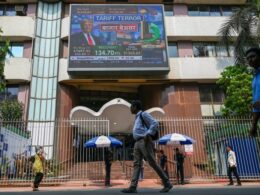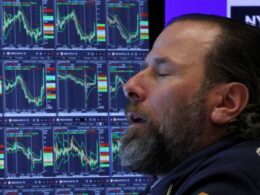Unlock the Editor’s Digest for free
Roula Khalaf, Editor of the FT, selects her favourite stories in this weekly newsletter.
Elon Musk’s lawsuit against OpenAI and chief executive Sam Altman has taken a significant step towards trial after a California judge rejected the ChatGPT maker’s attempt to dismiss the case.
The ruling keeps the two billionaires on track for a legal showdown as they compete for primacy over increasingly powerful artificial intelligence.
Musk, an OpenAI co-founder who donated much of the capital to get it off the ground, claims the group’s ongoing efforts to convert from a non-profit to for-profit entity constitute a breach of contract and fraud.
The Tesla chief filed a suit against Altman, OpenAI and the $300bn company’s biggest backer, Microsoft, last year and sought a preliminary injunction to block OpenAI’s conversion.
A judge denied the request to block in March but also agreed to expedite the trial — currently scheduled for March 2026 — by holding back some of the claims in the original lawsuit.
The judge, Yvonne Gonzalez Rogers of the Northern District of California, dismissed some aspects of the case on Thursday but concluded that Musk’s lawyers had made sufficiently sound allegations for it to proceed.
“In the world of litigation this is a big win,” said a person close to Musk, emphasising that Gonzalez Rogers had retained a number of “big-ticket items”, including Musk’s argument that OpenAI engaged in fraud.
“Musk adequately alleges that the defendants promised to maintain OpenAI’s non-profit status and structure in order to obtain his contributions, and that they intended to do so in order to obtain the capital needed to create a for-profit venture to enrich themselves,” the judge wrote in her ruling.
Gonzalez Rogers also denied OpenAI’s bid to dismiss Musk’s claim that a contract existed between Musk and OpenAI. “Although there is no express contract, Musk adequately pleads in the alternative that there is an implied-in-fact contract,” she wrote.
OpenAI can appeal against the decision.
The company is trying to simplify its novel corporate structure to become a for-profit public benefit corporation, in part to ensure it can more easily raise capital from outside investors. It is currently governed by a non-profit board with a mission to create powerful AI for the benefit of all humanity.
Its efforts to convert to a for-profit have drawn criticism from former employees and AI experts including Geoffrey Hinton, Margaret Mitchell and Stuart Russell, who say the move would transfer control of the development of such tools to a company driven by profits.
OpenAI declined to comment. The company countersued Musk last month, arguing that his efforts to derail its conversion were “bad-faith tactics to slow down OpenAI and seize control of the leading AI innovations for his personal benefit”.
Musk is the founder of xAI, which is developing similar technology to that of OpenAI.
Microsoft did not immediately respond to a request for comment. Musk’s legal team declined to comment.
Additional reporting by Michael Acton and Stephen Morris in San Francisco
Source link









